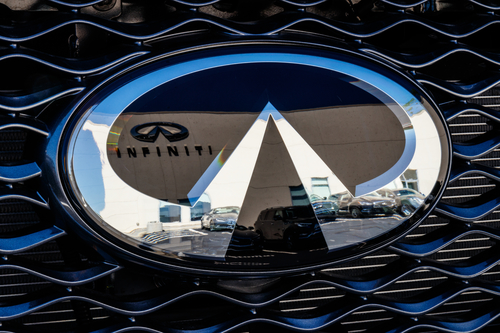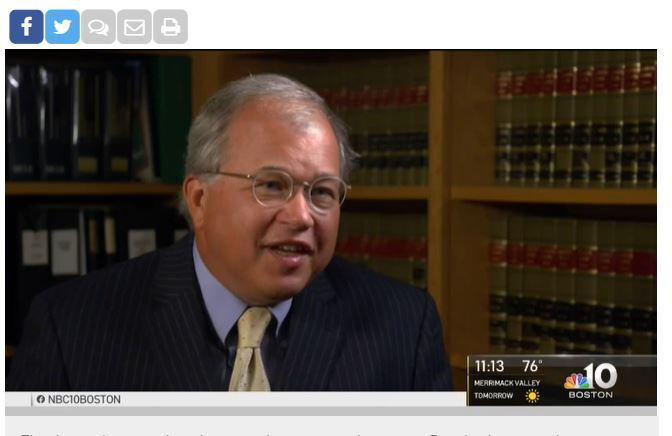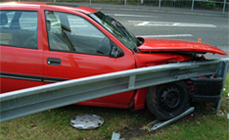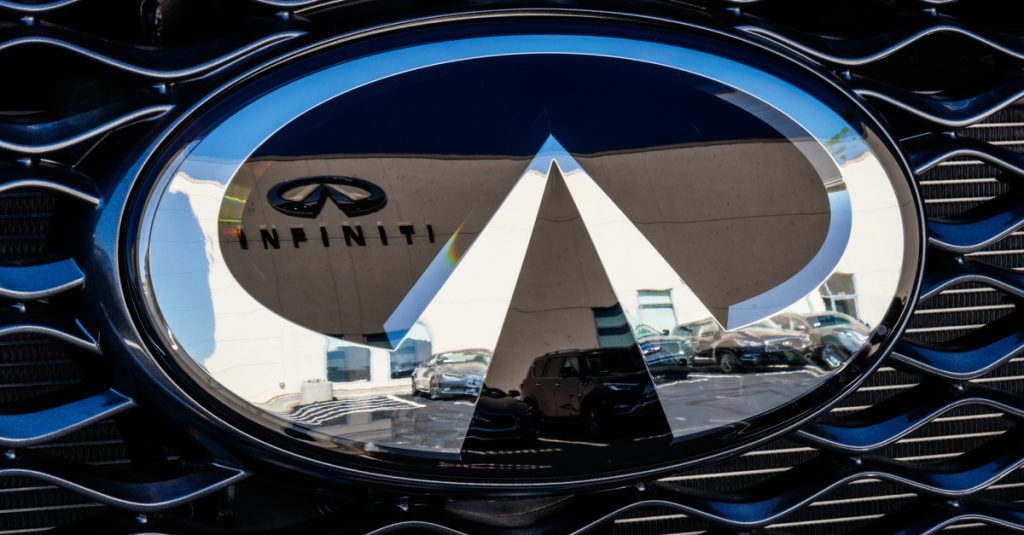Posts Tagged ‘“car accident lawyer”’
Ford, GM and Nissan Make Auto Recall Headlines in 2019

Nissan has recalled 1.23 million vehicles because the backup camera displays are not working properly (Sept. 2019)
It is always wise to stay informed about your car and to regularly check for auto recalls. This was the lesson of the past decade and is sound advice again in 2019, as General Motors, Ford and Nissan have announced new safety defects.
General Motors Recalls
General Motors (GM) has issued several recalls during 2019, most notable 3.5 million SUVs and trucks with faulty brakes. This recall was announced in mid-September and was associated with 13 related injuries and 113 car crashes, according to Consumer Reports. This was a known problem in some GM models, including the Chevrolet Silverado, GMC Sierra pickup trucks and the Chevrolet Tahoe.
The National Highway Traffic Safety Administration (NHTSA) has been investigating since November 2018, when it received complaints. General Motors has been repairing vehicles since December 2018. A Canadian recall was issued in June.
The GM vehicles have a defect with a powered brake-assist system, potentially impacting the amount of pressure required to stop. There are several warning signs: drivers may experience a vibrating brake pedal, hear a ticking noise or see a message reading “Service Brake Assist” on the dashboard. GM dealers can re-program the braking software at no charge.
Nissan Recalls
Don’t trust the backup camera display if you are driving a Nissan. The automaker has just recalled 1.23 million vehicles – including many of its most popular models – because the backup camera displays are not properly returning to their default settings. This recall involves 2018 and 2019 models of the Nissan Altima, Nissan Murano, Nissan Pathfinder, the Infiniti and numerous other models. No injuries were reported. Read more.
Ford Recalls
Ford has also made negative headlines. Back in January, the automaker called back 953,000 vehicles worldwide as part of the ongoing Takata airbag recall. More than 782,000 vehicles were in the U.S. market. The recall covers 2010 through 2014 models, including the Ford Edge, Ford Ranger, Ford Fusion, Lincoln MKZ, Mercury Milan and the Ford Mustang.
Automakers continue to recall the Takata airbags, which have caused dozens of deaths and hundreds of serious injuries. The deadly recall has now touched 41.6 million vehicles, according to the NHTSA. While these recalls were first announced years ago, the NHTSA says the repairs must happen in phases over time. Priority has been given to the oldest vehicles in Florida and other warm weather states.
In August, more bad news and another recall. Ford announced that more than 550,000 more trucks and SUVs in North America had glitches – the backseats were not providing proper restraints. Among the vehicles: certain 2018 through 2020 models, including F-150 pickups, Super Duty trucks, Explorer SUVs and Expedition SUVs.
Toyota Recalls
In August, Toyota recalled 135,000 Corollas and Matrix hatchback vehicles from model years 2005 to 2008, according to Cars.com. These vehicles had airbags which needed replacement due to the Takata recalls, but these repairs were previously made and were not related to the latest recall.
Check Your Vehicle for Safety Recalls
You can visit the NHTSA website to check if your vehicle has been subject to a recall.
Boston Product Liability Lawyers – Free Legal Consultation
With more than 100 years combined experience, Breakstone, White & Gluck is known as one of the best personal injury law firms in Massachusetts. We have extensive experience handing cases which involve car accidents, truck crashes and pedestrian injuries in Boston and other communities. In some cases, a defective part may contribute to a car crash and injuries. Our attorneys have investigated and aggressively represented clients in these cases, ultimately obtaining the financial compensation they deserve.
If you have been injured in a car accident in Massachusetts, learn your legal rights. For a free legal consultation, contact us at 800-379-1244 or 617-723-7676 or use our contact form.
NBC Boston Interviews Attorney David W. White About Hidden Dangers of Electric Scooters

Attorney David W. White was interviewed by NBC Boston and said consumers are surrendering key rights when they enter into e-scooter agreements.
Electric scooters may look like an easy and convenient way to travel. But as they move into Massachusetts, there are definitely words of caution for riders.
Attorney David W. White was interviewed as part of NBC Boston’s coverage on e-scooters. He told NBC Boston’s Ally Donnelly that riders are often unaware of how vulnerable they are. If they are injured, they may look to their health insurance plan for coverage. But if they hit a pedestrian or cause property damage, they are on their own.
“You’re putting everything in the hands of the company and preserving essentially no rights for yourself whatsoever,” Attorney White said.
When riders accept a scooter company’s user agreement, they agree to resolve any issues through confidential arbitration with the e-scooter company and the maximum award is $100 – no matter what the situation. In most cases, when someone is seriously injured, they may require medical expenses as well as other damages, such as lost wages and pain and suffering.
But he said, “The most they will ever give you if they give you anything is $100.”
NBC Boston interviewed scooter riders in Brookline who admitted they hadn’t read the user agreement. While it appeared tiny on a cell phone, NBC Boston found one agreement actually printed out to 50 pages.
Attorney White said, “Our legislature is a decade behind this issue. Our insurance industry is a decade behind this issue. Everyone should care about this.”
The Boston City Council approved scooter regulations last March. Meanwhile, the Town of Brookline launched its e-scooter pilot program last April, bringing 200 scooters to the road. The program continues through mid-November.
Drivers Running Red Lights Causing Record Number of Car Accidents in Massachusetts, Across the U.S

Drivers who run red lights are causing a record number of deaths in Massachusetts and across the U.S., according to a new study.
While red means stop, we have all seen cars speed on, especially if you live in Boston. Our attorneys have represented countless clients who have been seriously injured or killed by another driver’s recklessness at intersections. Now, a new study reports running a red light is causing a record number of traffic fatalities across the United States. From AAA’s Foundation for Traffic Safety:
- Red light running crashes have reached a 10-year high in the U.S.
- 939 people were killed when drivers sped through red lights in 2017, a 28 percent increase over 2012.
- More than a quarter of all intersection accidents happen because drivers run red lights.
- Nearly half of those injured in red light crashes were passengers or occupants of other vehicles. Pedestrians and cyclists accounted for more than 5 percent of fatalities.
- Over 35 percent of traffic deaths were red light running drivers themselves.
- 85 percent of drivers consider it very dangerous to run a red light, yet one in three reported speeding through one in the past 30 days, according to AAA Foundation’s Traffic Safety Culture Index.
- On the same note, nearly half (more than 2 out of 5 drivers) found it unlikely that they would ever be stopped by law enforcement.
- Despite these responses, running a red light can have serious consequences, resulting in a possible insurance surcharge or criminal charges.
AAA officials count Americans driving more and distracted driving as two causes. Meanwhile, the Federal Highway Administration reports more than 50 percent of fatal and injury crashes in the U.S. happen at or near an intersection.
Massachusetts Red Light Accidents
Red light crashes are a danger at Massachusetts intersections. From 2008 to 2017, Massachusetts lost 43 people when drivers ran red lights, according to Wicked Local. These deaths are just the drivers who were caught and are in addition to other injuries.
Safety Recommendations: Roundabouts and Traffic Cameras
AAA officials say roundabouts and traffic cameras could reduce the number of crashes. Massachusetts is actively working to convert rotaries into roundabouts, which are considered safer because they force drivers into the correct lanes. However, with more than 100 rotaries across Massachusetts, change will take time.
There is long-standing opposition to traffic cameras at Massachusetts intersections, even as AAA says traffic cameras have reduced fatal red light running crashes by 21 percent in large cities. Overall, traffic cameras have contributed to a 14 percent reduction in all fatal crashes at signalized intersections.
Unlike some states, Massachusetts does not have a state law permitting use on local intersections. While MassDOT operates traffic cameras along the MassPike, there is a battle over local intersections.
More than a decade ago, several Massachusetts communities attempted to pass ordinances allowing for red light cameras, among them Saugus, Lawrence and Springfield. South of Boston, Brockton also approved a local traffic camera ordinance. Traffic cameras were never installed. Citing privacy concerns, state lawmakers declined to pass the legislation necessary for these local ordinances to stand. Now years later, there are state lawmakers interested in similar legislation, so we may be revisiting the debate at some point. Here is one lawmaker’s blog.
Across state lines, you may find traffic cameras at red lights in Rhode Island, along with 19 other states. Rhode Island, however, does not have a state authorizing the use of speed cameras (Source: Governors Highway Safety Association).
AAA only recommends traffic cameras at intersections with demonstrated patterns of red light violations or high crash rates. Cameras should be part of broader traffic safety programs and drivers should be notified through signage and other methods.
Reducing Red Light Accidents in Massachusetts
Drivers have a responsibility to operate with care and pass other vehicles, cyclists and pedestrians at a safe distance in Boston and every other community in Massachusetts.
The Boston area commute is stressful. Leaving your home a few minutes earlier was once an effective way to beat the traffic. Unfortunately, as traffic congestion has grown, you now have to leave even earlier in many Massachusetts communities and that isn’t always enough to beat the 2-3 hour commutes. But even in these conditions, practicing patience and putting down your cell phone are paramount to preventing red light crashes and distracted driving accidents causing injury or death. Always watch for pedestrians and cyclists, maintaining a safe distance at all times and taking extra care when approaching crosswalks and bike lanes. Remember you may not be able to see a pedestrian until that moment they step onto the road.
Free Legal Consultation – Boston Car Accident Lawyers
Breakstone, White & Gluck has been recognized for our superior results for clients. Founded in 1992, our law firm specializes in representing those who have been injured due to the negligence and wrongdoing of others. We specialize in handling cases involving car accidents and truck crashes in Boston, Cambridge, Cape Cod, the South Shore, the North Shore and across Massachusetts. If you have been injured, learn your rights. Contact our firm for a free legal consultation: 800-379-1244 or 617-723-7676 or use our contact form.
Teen Driver Safety Week Time to Talk About Safe Driving
 National Teen Driver Safety Week, which takes place from October 14 – October 20, is a good time for parents and teenagers to talk about driving safety.
National Teen Driver Safety Week, which takes place from October 14 – October 20, is a good time for parents and teenagers to talk about driving safety.
Traffic crashes are the leading cause of death for teenagers in the United States. Common causes are inexperience, failure to wear a seat belt, drinking and driving, speeding and distracted driving.
Even if you have already had a conversation in the past, we encourage parents to speak to their teens about preventing car accidents and include these points:
Understand the law.The Massachusetts Junior Operator Law places restrictions on drivers from traveling with passengers under 18 during their first six months of holding a license. The lone exception is for siblings. Junior operators are also forbidden from driving between the hours of 12:30 a.m. and 5:00 a.m.
Wear a seat belt. This reminder is always important. Teenage drivers and their passengers have some of the lowest rates of seat belt use, according to the National Highway Traffic Safety Administration (NHTSA).
No talking or texting on the cell phone. Texting while driving is illegal for any person driving in Massachusetts, and using a cell phone while driving is against the law in Massachusetts for drivers under 18. Teens face steep penalties for violations of either law. For first offenses, they face a 60-day license suspension and other sanctions. Suggest your teen put their cell phone out of sight or in the back seat when driving.
Limit food and beverage consumption. Eating while driving is very distracting. Ask your teen not to eat and to limit beverage consumption while driving. Suggest they eat before leaving home or at another safe place.
Limit driving with other teens. Conversation can be distracting for any driver, especially teens who may be excited about enjoying freedom of the road without an adult.
Avoid loud music. Music of any volume can be a distraction while driving, but loud music and adjusting the radio controls can be especially hazardous for teenage drivers.
No grooming. Remind teens they cannot focus on the road while grooming.
No speeding. Remind teen drivers to watch the speed limit, especially in school zones where they may encounter young children.
You can also:
Drive with your teen. Sit in the passenger seat with your teenager on a regular basis and observe how they handle basic driving tasks, such as stop lights, passing other cars, keeping a safe distance on the highway, and changing lanes. By not using or even checking your cell phone, you can set a good example for your teen. Also refrain from heavy conversation. Finally, unless safety is at stake, hold your suggestions until a few hours later, when you are out of the vehicle and they won’t tense up or get anxious behind the wheel.
Additional Resources
Massachusetts Junior Operator License Requirements
Tips on the Massachusetts Junior Operator Law for Parents
Read More



